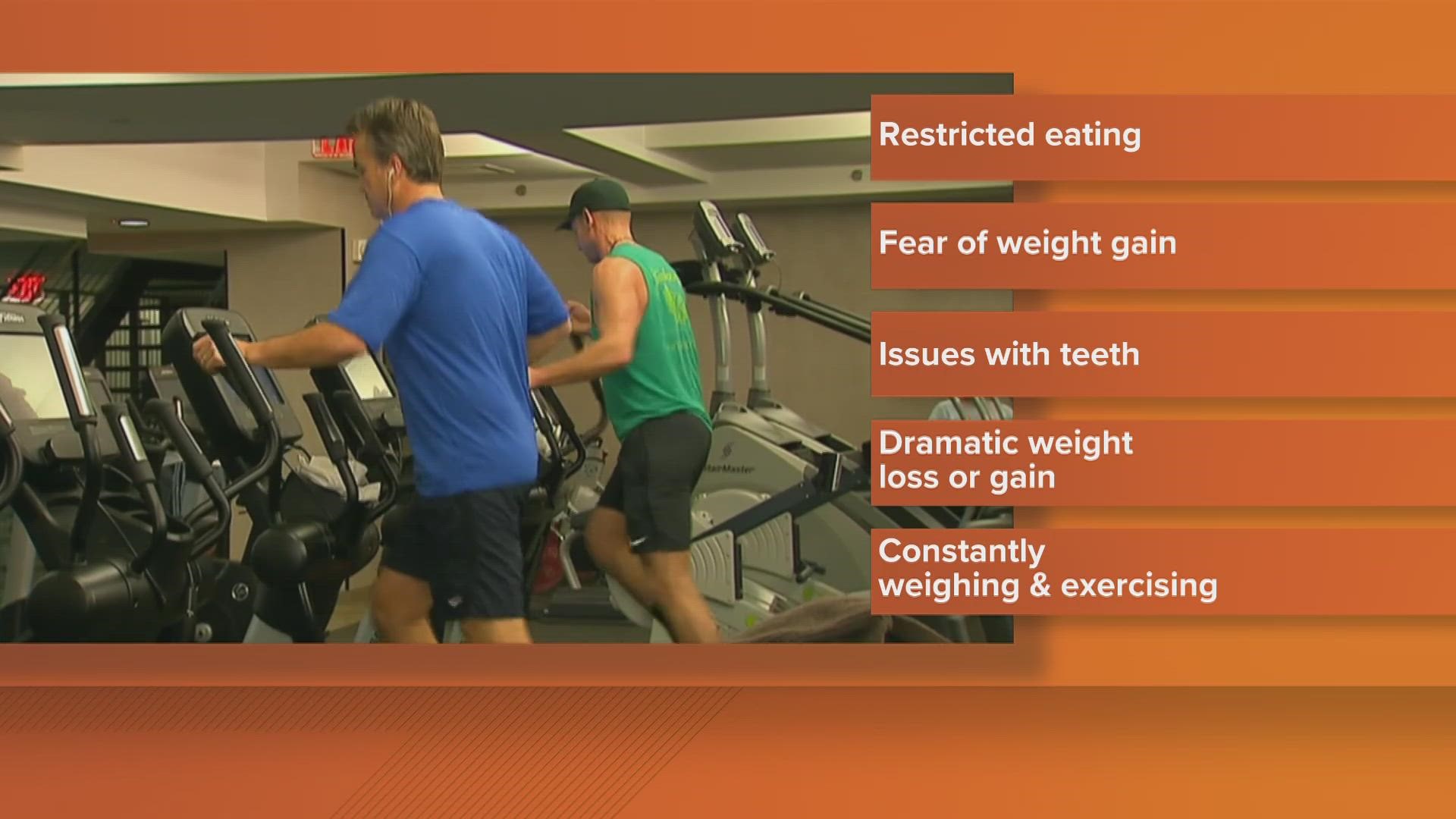MAINE, Maine — Data show that nearly 1 in 10 Americans will have an eating disorder at some point in their lifetime. That's about 29 million people.
There are diagnosed eating disorders such as anorexia and bulimia, but other behaviors can be categorized as disordered eating. For example, a person may be experiencing disordered eating if they their weight constantly fluctuates, or if they are always trying new diets and are losing a lot of weight and then gaining a lot of weight. Other signs can be restricted eating, an intense fear of gaining weight, bad dental health, always calculating your food or your weight, and over-exercising.
Cara McNulty, CVS Health president of mental well-being and behavioral health, said anyone can be affected by an eating disorder.
"It is a myth to think that eating disorders only affect young women and adolescents," she said. "What we know is that, since the pandemic, we've seen a 70 percent increase in eating disorders, and it's really easy especially over the pandemic to feel isolated. You start looking at social media and thinking, 'Oh my gosh, everybody else has this together. Nobody else has gained any weight over the pandemic. I really need to do something.' And sometimes those best intentions can turn into preoccupied excessive behavior."
Eating disorders are real and complex conditions that impact a person's everyday life, well-being, and overall health.
"We have a higher propensity in the younger adult, we just so think adolescent through college, but we still see numbers creep up beyond college," McNulty added. "The stress that people have experienced over the last three years specifically has really caused more increases in things like eating disorders, anxiety, and depression, and what is important to know is that you don't have to suffer alone, you are normal, and there is help."
If you think you, your kids, or any loved one might have an eating disorder, it's important to reach out to your primary care provider.

